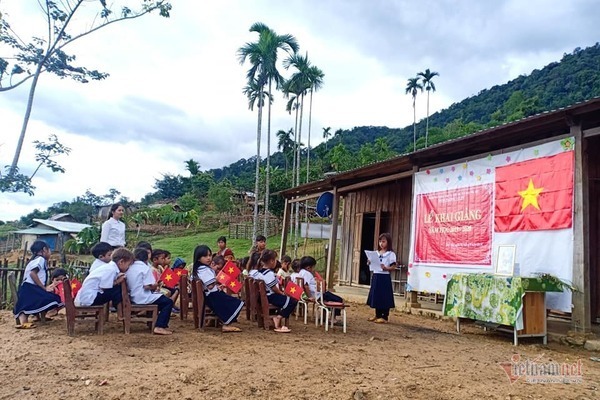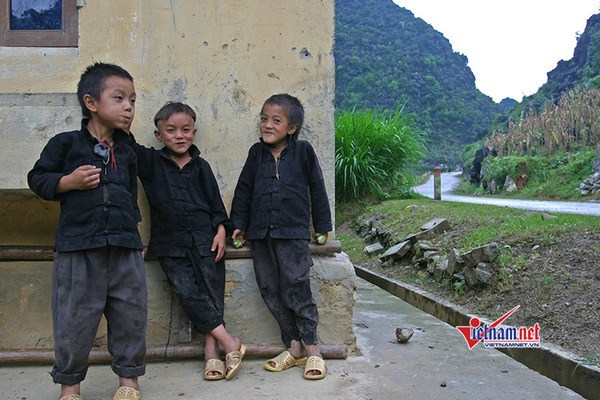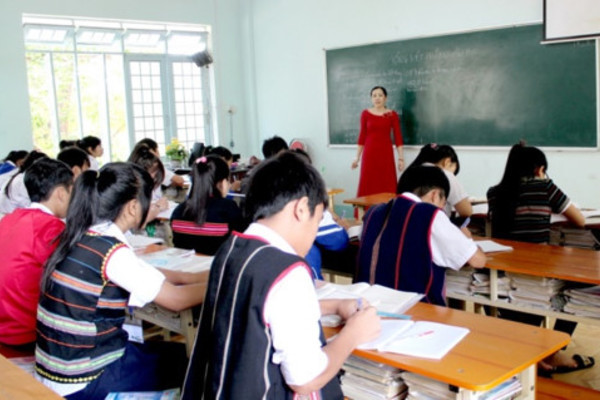 |
|
The network of preschools and general schools in the mountainous areas has been strengthened and expanded.
|
One of the important indicators to demonstrate whether the guarantee of human rights is implemented and has come to life is to create favorable conditions and opportunities for all people to study and improve qualifications, especially ethnic minorities and disadvantaged people in society.
In recent years, Vietnam has had many practical and appropriate policies and measures to enhance the assurance of learning conditions and continuously improve the quality of training human resources in mountainous areas.
"Everyone can study"
 |
|
The Communist Party of Vietnam has repeatedly affirmed that education is the leading national policy; investment in education is investment for socio-economic development.
|
Vietnam is a multi-ethnic country, including 53 ethnic minorities, with 13.4 million people, accounting for 14.6% of the country's population. The majority of ethnic minorities reside in the Northwest, Central Highlands, Southwest and Central Coastal regions, accounting for three quarters of the country's area. These are places with high mountains, fragmented terrain and difficult transportation, but at the same time, they are also strategic locations, crucial in terms of national defense, security and ecological environment.
Speaking to foreign journalists in early 1946, President Ho Chi Minh said: "I have only one desire, the utmost desire, to make our country completely independent and our people completely free, where everyone has food and clothing, everyone can study.”
The Communist Party of Vietnam has repeatedly affirmed that education is the leading national policy; investment in education is investment for socio-economic development. Paying attention to the cause of education, raising people's knowledge and training human resources for ethnic minorities in the border and mountainous areas is not only the Party and the State's responsibility and obligations but also a matter of strategic significance and a regular task to contribute to consolidating and strengthening the great national unity bloc and improving the endogenous power for the country.
Numbers can talk
 |
|
Many provinces have stepped up the teaching of ethnic minority languages to indigenous students.
|
All guidelines and policies are only meaningful when they are put into practice and verified by reality. The success of ethnic minority education in Vietnam is vividly illustrated by statistics.
Currently, 100% of mountainous communes have secondary schools, primary schools and most communes have schools and preschool classes. The country has 315 boarding schools for ethnic minorities in 49 provinces and cities with a total of 109,245 boarding students. In particular, the number of boarding schools for ethnic minorities meeting the national standard accounts for about 40%. In addition, there are 975 semi-boarding ethnic minority high schools and 5 ethnic minority pre-university training schools.
According to Mr. Do Van Chien, Minister, Chairman of the Committee for Ethnic Minorities, in recent years, investment in education and training development in the mountainous areas has been identified by the Party, State and localities as one of the priorities in the socio-economic development strategy. Up to 51/53 ethnic minority groups have university students, who are financed by the State.
The network of preschools and general schools in the mountainous areas has been strengthened and expanded. The model of boarding high school for ethnic minority students has made a great contribution to training officials, fostering and developing quality human resources in mountainous areas and areas with special socio-economic conditions.
One of the practical activities showing the State’s interest in education for ethnic minority people is that many provinces have stepped up the teaching of ethnic minority languages to indigenous students. Currently, schools in 23 provinces and cities with large groups of ethnic minorities are teaching 8 ethnic minority languages, including: Mong, Cham, Khmer, Gia Rai, Ba Na, E De, Mo Nong and Thai.
This is a clear evidence for ensuring cultural rights for ethnic minorities in accordance with the spirit of the 2013 Constitution that has stated: “Ethnic groups have the right to use the spoken and written language of their own, preserve identity, and develop their customs, practices, traditions and culture”.
Thanks to the State’s focus on education in the mountainous region, the rate of literate ethnic minority people aged 15-60 has reached 93.44%. There are more than 13,000 ethnic minority people with university and postgraduate degrees and over 78,000 people have graduated from vocational training secondary education. Therefore, the percentage of officials at all levels who are ethnic people in the political system is increasing. In the last 4 consecutive National Assembly terms, the proportion of National Assembly deputies who are ethnic people accounted for from 15.6% to 17.3%, higher than the percentage of ethnic minorities on the total population of 14.6%.
In addition to taking care of and supporting ethnic students in traveling and accommodation to study better, the Vietnamese Government has implemented practical policies to improve the cultural and spiritual life for them. Among 19 newspapers and magazines that have just been approved by the Prime Minister for free provision for the mountainous and disadvantaged areas in 2019-2021 period, there are two publications for ethnic minority students.
They are the "Young shoots" topic of the Nhi Dong (Children) Newspaper for elementary schools in the mountainous areas and the “Ethnic Minority Children” topic of Tien Phong Newspaper for secondary schools, boarding ethnic minority schools, semi-boarding ethnic minority schools in the mountainous areas.
These newspapers are like an extended arm between the Party, the State and future owners of the country in the mountainous areas and at the same time, contribute to providing information, spreading knowledge, and guiding ethnic minority students to implement a civilized and scientific lifestyle.
Changes in education in Vietnam in general and among the ethnic minority in particular have been recognized by the international community. On her third visit to Vietnam in August 2017, UNESCO's General Director, Irina Bokova, affirmed: “I see Vietnam has a lot of changes, especially positive economic development as well as quality of education, including achievements in promoting equity and equality in education."
Minh Van
 The positive changes in education for the minority population in Vietnam are living examples that contribute to ensuring cultural rights for all people.
The positive changes in education for the minority population in Vietnam are living examples that contribute to ensuring cultural rights for all people.